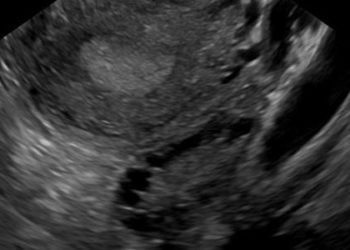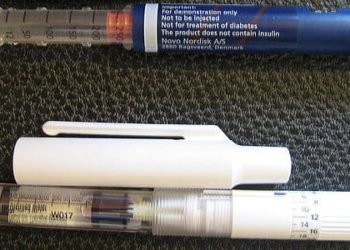Post-op blood glucose may be a poor quality measure for cardiac surgery
Image: PD
1. Post-operative blood glucose >200mg/dL was not associated with greater morbidity or mortality in cardiac surgery patients.
Evidence Rating Level: 2 (Good)
Study Rundown: Recent studies have demonstrated poor outcomes associated with hyperglycemia in critically ill patients. This led the Surgical Care Improvement Project (SCIP) to develop a quality performance measure of 6am blood glucose <200 mg/dL on post-op days 1 and 2 as a proxy for good glycemic control. This study aimed to evaluate the effect of meeting this measure on postoperative cardiac surgical outcomes, finding that patients who did not achieve the SCIP measure did not experience greater mortality or major morbidity, and did not incur greater hospital costs. However, as the intention for all patients was to achieve this measure, it cannot be excluded that efforts to meet the SCIP cutoff improved the outcomes examined. A blood glucose level as quality measure may still be effective, but should perhaps be evaluated with a different study design.
Click to read the study in J Thoracic CV Surgery
Relevant Reading: Tight Glycemic Control in Diabetic Coronary Artery Bypass Graft Patients Improves Perioperative Outcomes and Decreases Recurrent Ischemic Events
In-Depth [retrospective cohort study]: Data from 1703 patients >18 years of age undergoing cardiac surgery from 2010-2012 at the University of Virginia were reviewed. Blood glucose levels collected at 6 am on post-op days 1 and 2 were gathered prospectively to evaluate the SCIP measure, then stratified into two cohorts with a 200mg/dL cutoff. Propensity score matching was performed to generate matched SCIP and non-SCIP cohorts; postoperative outcomes were evaluated using multivariate regression models, and adjusted for STS predictive indices. The SCIP measure was achieved in 89.6% of patients. Non-SCIP patients more frequently presented with diabetes, dyslipidemia, and atherosclerosis-related cardiovascular disease, though STS risk indices were not significantly different between the cohorts. After adjusting for patient risk characteristics, SCIP measure failure was not significantly associated with increased mortality (OR 1.49, p=0.44), major morbidity (OR 1.51 p=0.16), or increased hospital resource utilization as defined by postoperative and ICU length of stay.
By Mariya Samoylova and Allen Ho
More from this author: Resident involvement linked with more complications in joint surgery; Promising liver transplant outcomes at 20 years; Transfusion worsens outcomes for HCV+ liver transplant recipients; Endovascular repair of ruptured AAAs no better than open repair; Longer preoperative treatment of pancreatic cancer may extend survival
©2012-2014 2minutemedicine.com. All rights reserved. No works may be reproduced without expressed written consent from 2minutemedicine.com. Disclaimer: We present factual information directly from peer reviewed medical journals. No post should be construed as medical advice and is not intended as such by the authors, editors, staff or by 2minutemedicine.com. PLEASE SEE A HEALTHCARE PROVIDER IN YOUR AREA IF YOU SEEK MEDICAL ADVICE OF ANY SORT.






